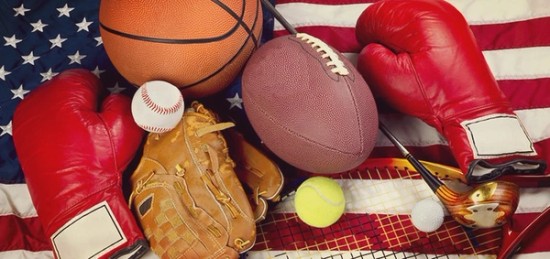Peanut butter and jelly. Just say the words and it makes us smile, takes us back to being kids or staying young. This perfect combo is a savory, sweet, creamy or crunchy treat that is good any time of the day. As a sports dietitian, I want my athletes to capitalize on what they eat in terms of the performance benefit, the cost per bite, the safety of the food and most of all the enjoyment.
So let me count the ways on why I am crushin’ on PBJ!
1) A nutrient-rich powerhouse:
Peanut butter has protein (8 grams) and fat (16 grams) for fuel that lasts. This is extremely important to athletes who may practice for hours or compete in sports where they must be on the court, course, or field all day.
Peanut butter also has 208 milligrams (6% DV) of potassium per 2 tablespoon serving. Potassium is important for muscle contraction.
Peanut butter contains 2 grams (8% DV) of fiber per serving. Choosing a 100% whole wheat wrap, bread or sandwich or bagel thin with at least 5 more grams adds some fiber as well, which is a nutrient that many athletes consume in smaller amounts than what they need. My athletes LOVE a small whole wheat or multigrain wrap!
Pair peanut butter and bread with jelly and you add some needed carbs for a readily available fuel source. For those looking to minimize their sugar intake, try:
- A thin drizzle of honey and a sliced banana
- Low-sugar fruit spread or fruit butter (such as apple butter) has 6 grams of sugar per tablespoon compared to regular jelly (11 grams), jam (10 grams) or preserves (8 grams).
Want something different?
Mix freeze-dried fruit into the peanut butter to add a little crunch and sweetness, or add 1 tablespoon of golden or black raisins, craisins or dried tart cherries to the peanut butter for 8 grams of sugar vs. 11 in the jelly.
And consider PBJ a different way
Pack a small container of peanut butter and a separate container of some cut-up fruit, freeze-dried fruit or dried fruit. Instead of the bread, use a few graham crackers, or mini rice cakes, or even a breadstick. You could mix the fruit in the peanut butter and dip or spread away.
2) SO easy:
I have a lot of athletes who don’t know how to cook, but they can all make a PBJ. For the time-pressed, I have them make a bunch of sandwiches and freeze them so it is one less thing to worry about on the way out the door.
3) Functions as a meal or snack:
- PBJ is great any time of the day.
- Pairing a PBJ with a glass of milk in the morning is a great way to start the day
- Adding a little vanilla whey protein isolate to the peanut butter boosts the protein, adds a little sweetness and makes for a protein-packed lunch
- PBJ bites: a wrap cut into small pieces is great pre and post-workout or as a bedtime snack
4) A great food for travel or all-day activities:
I always worry about food safety, and certain higher protein foods such as yogurt, eggs and turkey breast can’t sit in a locker, gym bag or desk all day. Peanut butter is nonperishable, portable and quite packable. Keeping athletes safe on their plate is another way peanut butter is so great!
5) A big bang for the buck:
Many athletes have a salary cap and middle school, high school, collegiate and even Olympic athletes don’t get paid for the sports they do, so budget-friendly foods that keep well over a long time are extremely appealing. Peanut butter and jelly added to oatmeal, or a smoothie, or on crackers or bread is a low price with a taste that is quite nice!
PBJ provides the fuel for the athlete to play most deliciously!

